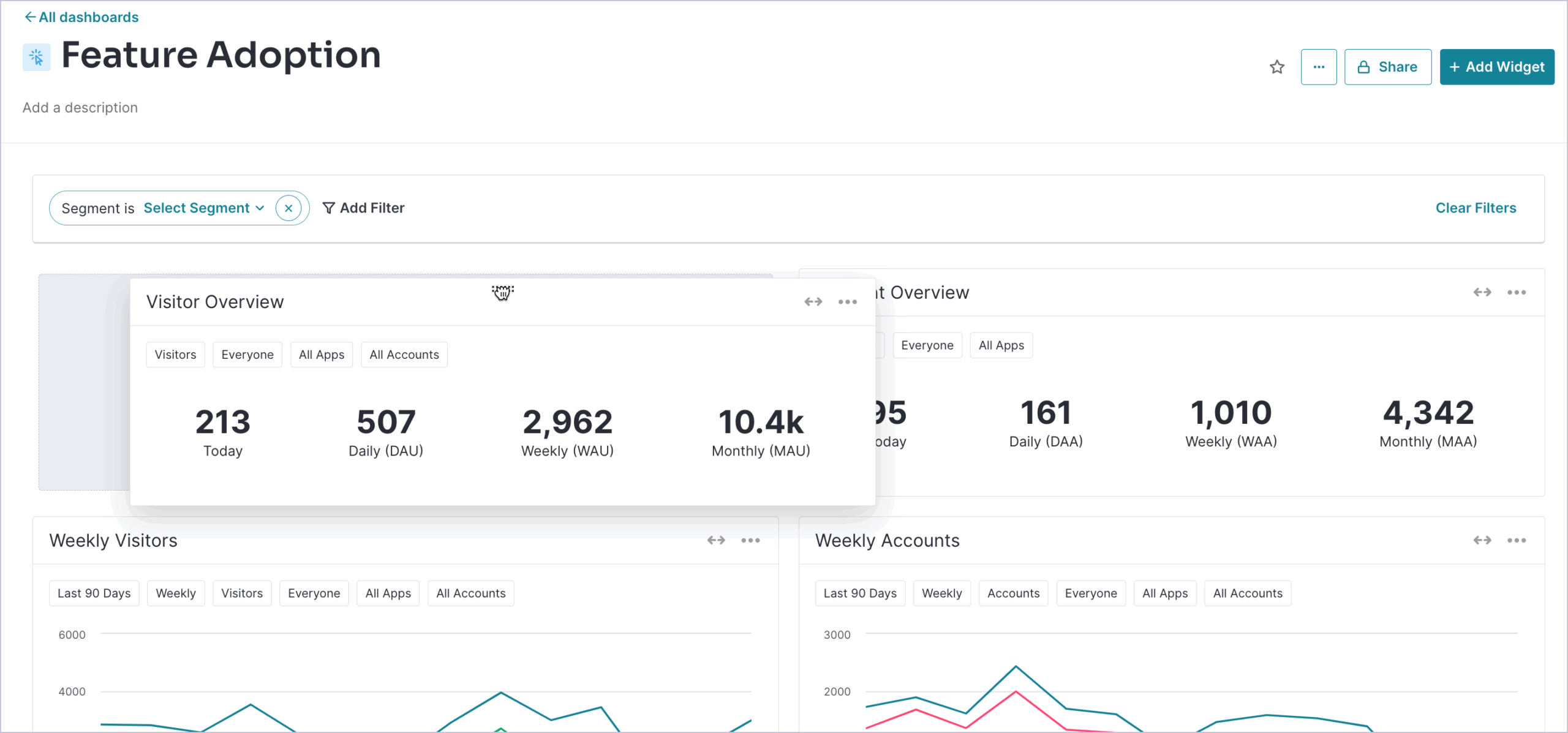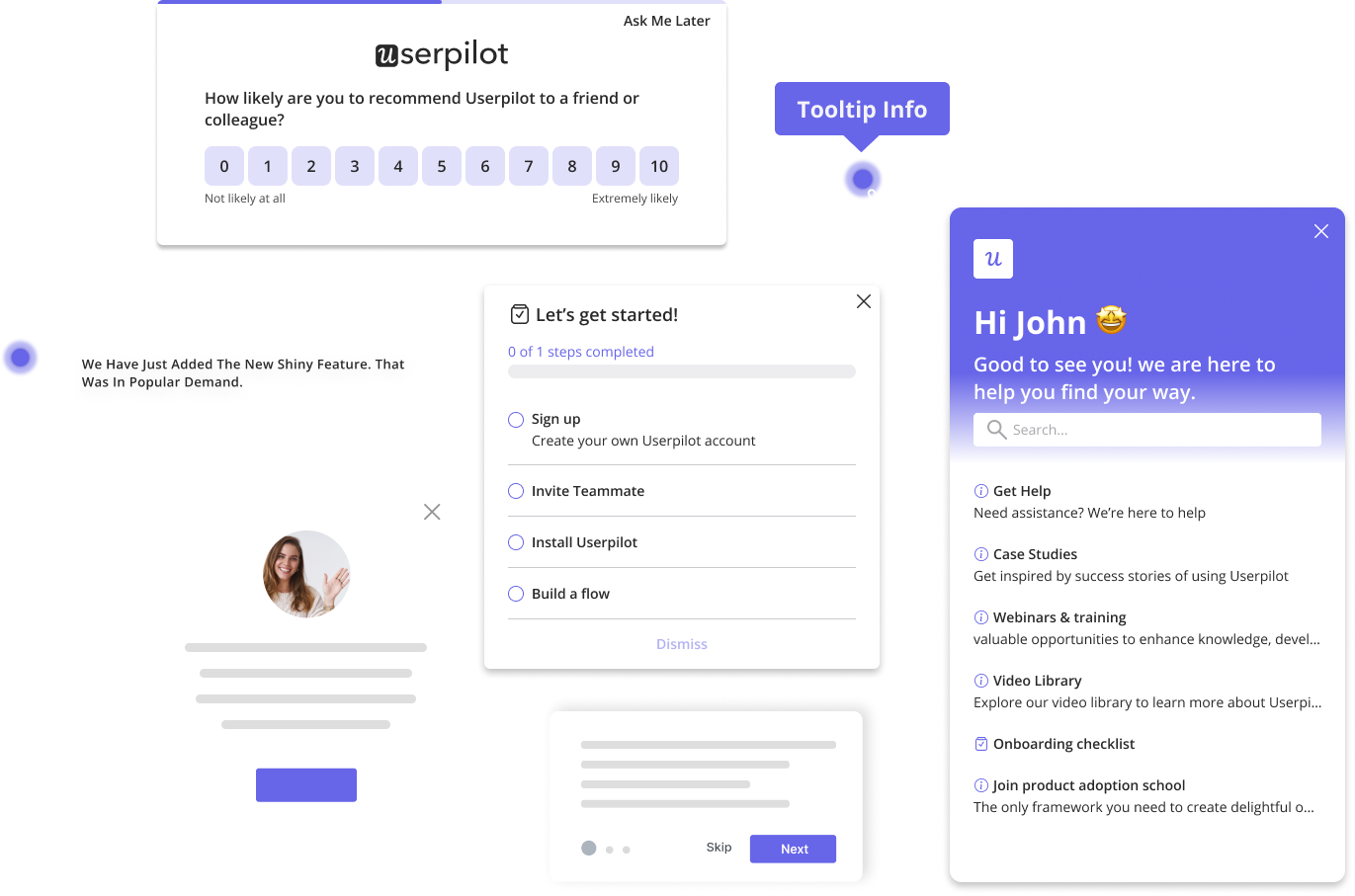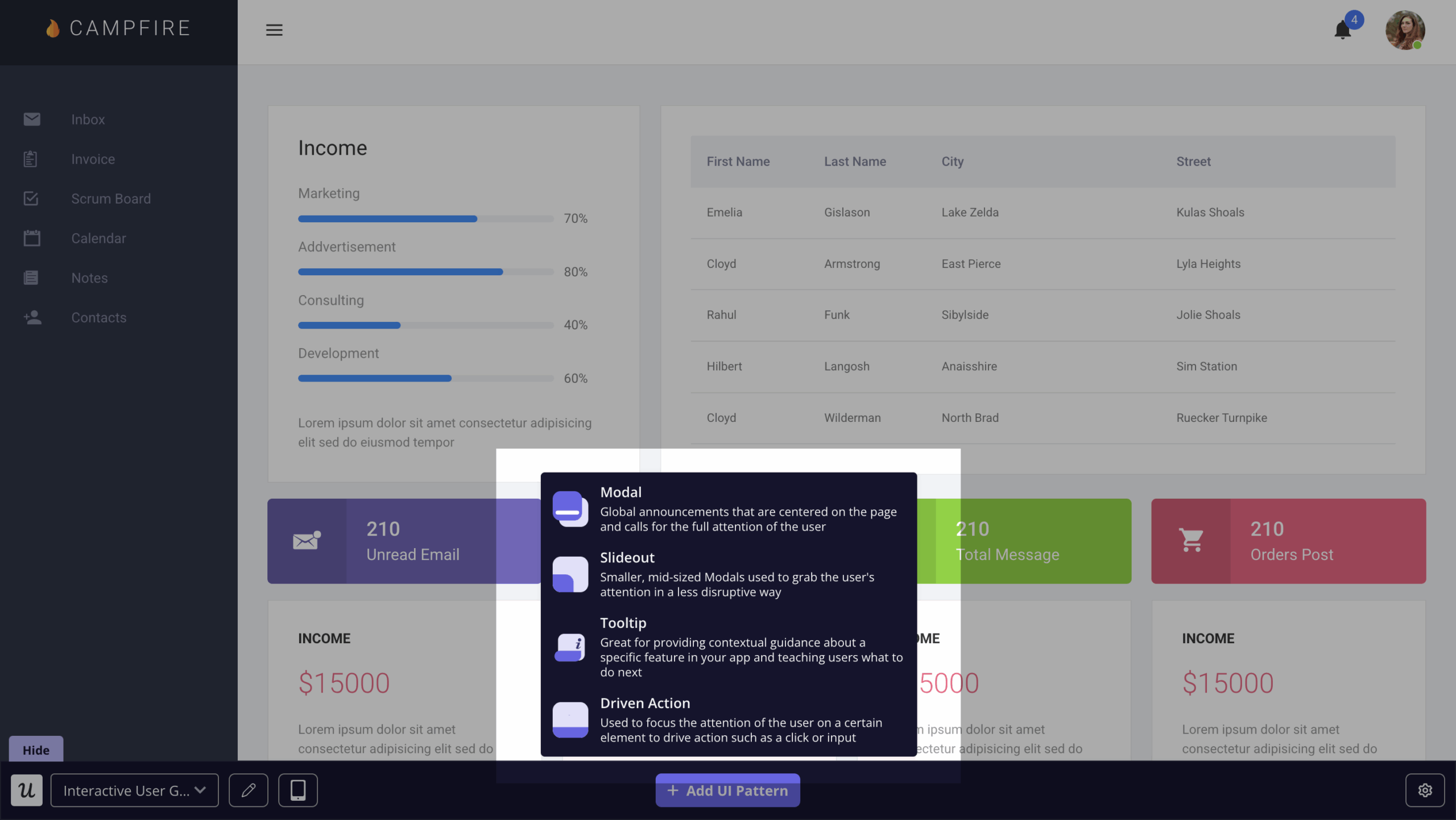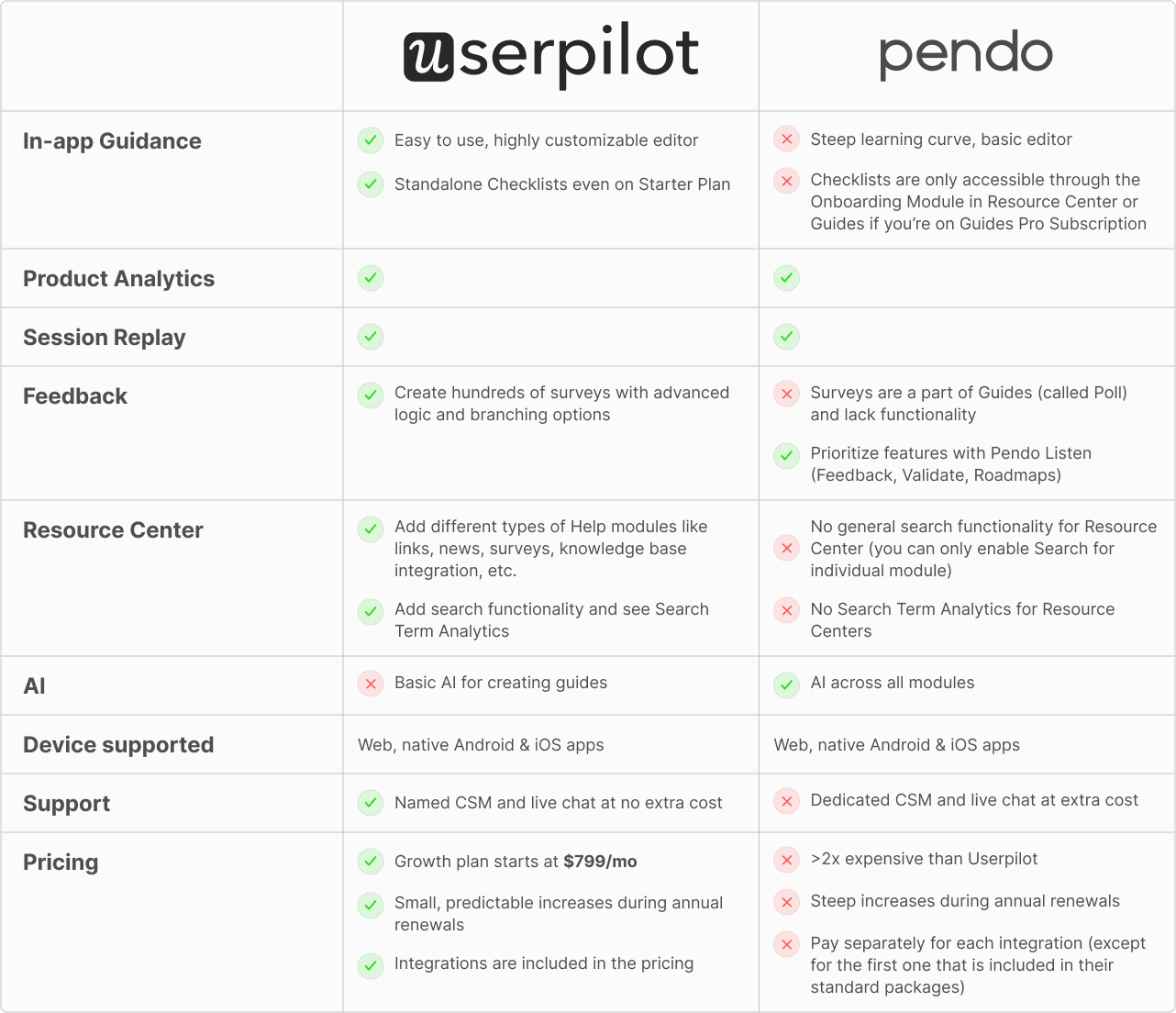
Curious about how you can use a tool like Pendo to grow your product? What are its best features and are there any drawbacks you should be aware of before investing in it?
We answer these questions in this article and dive deep into the use cases of Pendo, its pros and cons, along its pricing. We’ll also explore an alternative tool for product growth that offers more value for money.
Get The Insights!
The fastest way to learn about Product Growth, Management & Trends.
What is Pendo?
Pendo is a product experience platform that allows cross-functional teams to analyze user behavior and improve the user experience.
Initially built by Todd Olson in 2013 as a product analytics platform, Pendo later built features for feedback collection and in-app engagement, becoming a full-stack tool for product teams.
Top Pendo features and use cases
As mentioned, Pendo has three use cases: product analytics, in-app engagement, and feedback collection. In this section, we’ll go over individual features for each use case so you can better understand how Pendo enables these functions.
Analytics for tracking user behavior
One thing users enjoy about Pendo Analytics is the ability to view retroactive user interactions. They can tag past events and review results in a dashboard. Pendo also offers AI-driven recommendations based on the collected user data.
Having access to analytics lets users make data-driven decisions to improve the product. You can view key metrics, such as feature adoption, in analytics dashboards or paths, funnels, or cohort-based retention reports.
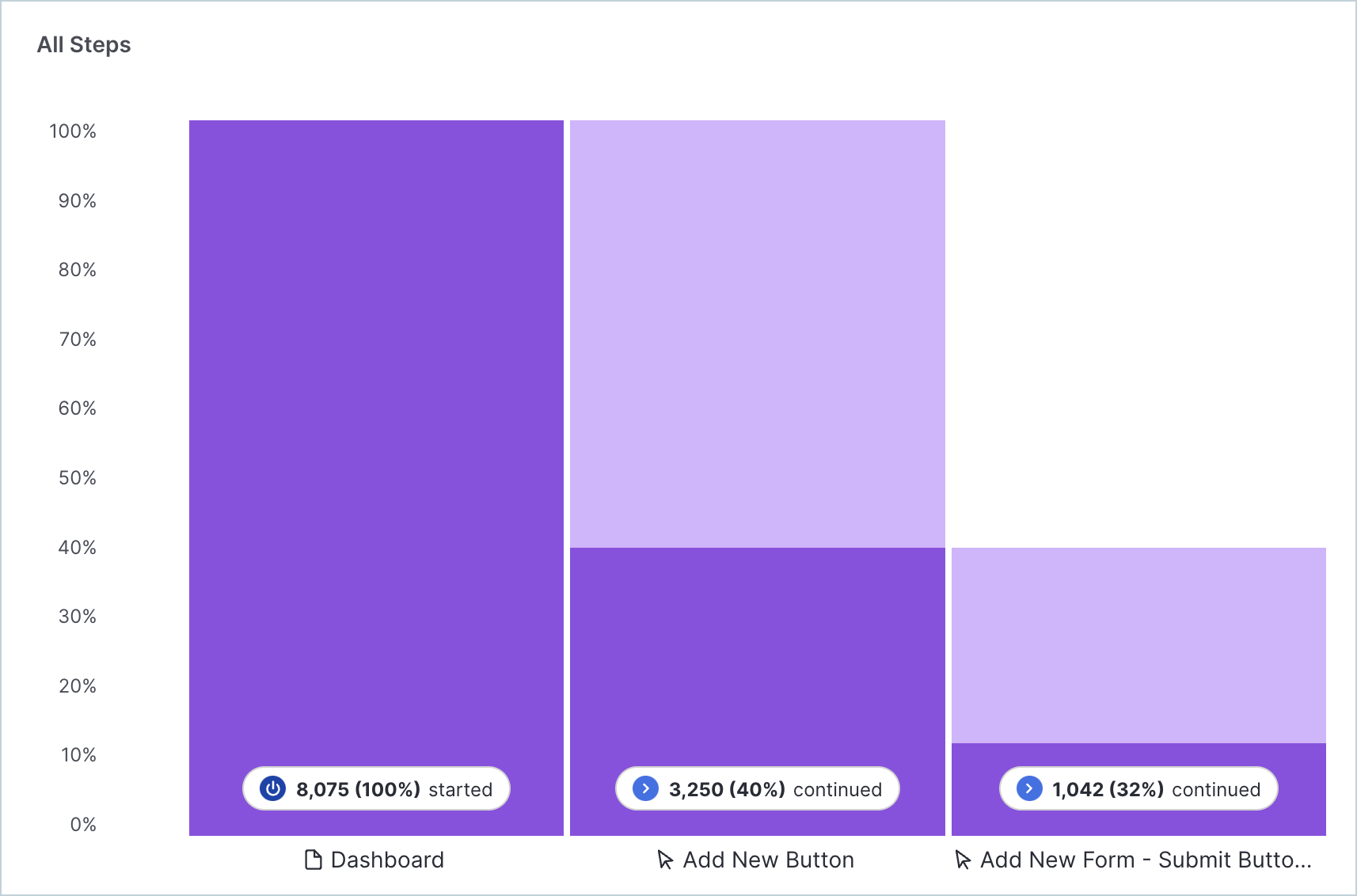
If you want to have eyes on individual user behavior analytics, you can also use the session replay feature. This way, you can watch a video of how each user interacts with your tool.
In-app guidance for driving user engagement
Pendo lets you launch in-app messages to guide users through your app via Pendo Guides. You can reduce friction points and ensure your customers can easily understand and use your platform.
This functionality is also helpful for users to discover new features, offer better onboarding experiences, and collect customer feedback.
You can build guides in the form of tooltips, lightboxes, polls, modals, onboarding checklists, and banners.
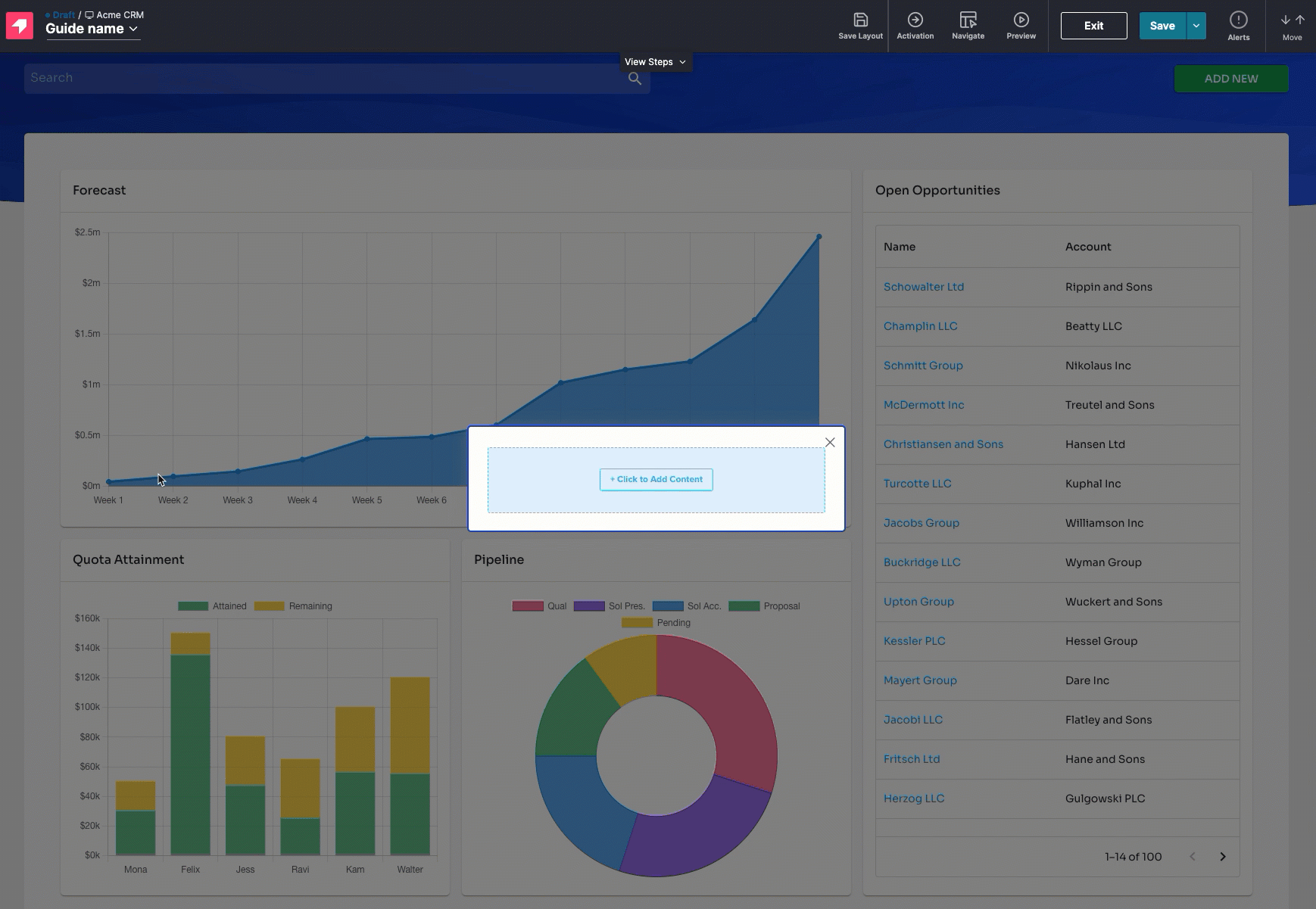
Polls and surveys for user feedback collection
Pendo Surveys (called polls) are available through its in-app Guides module. They are among its most-used features for collecting user feedback. While responses can feed into Pendo Listen for centralized analysis, the creation and deployment happen in Guides.

Pendo also lets you build and launch NPS surveys for tracking customer loyalty. You can then see the results in a dedicated NPS dashboard. Note that Pendo’s Base plan includes its brand logo in NPS surveys.
Integrate with other tools such as Salesforce and Zendesk to centralize the feedback that you capture outside of Pendo. Then, use Pendo AI to manage and combine user insights coming from qualitative feedback in bulk. However, this AI feature is currently only available to NPS surveys having at least 600 text responses in English (no other languages are supported).
Roadmaps for product planning
Pendo Roadmaps (part of Pendo Orchestrate) lets you plan, view, and share your product vision and strategy with stakeholders by adopting a data-driven approach. For instance, use the usage data coming from behavioral analytics to explain the reasoning behind your roadmap decisions.
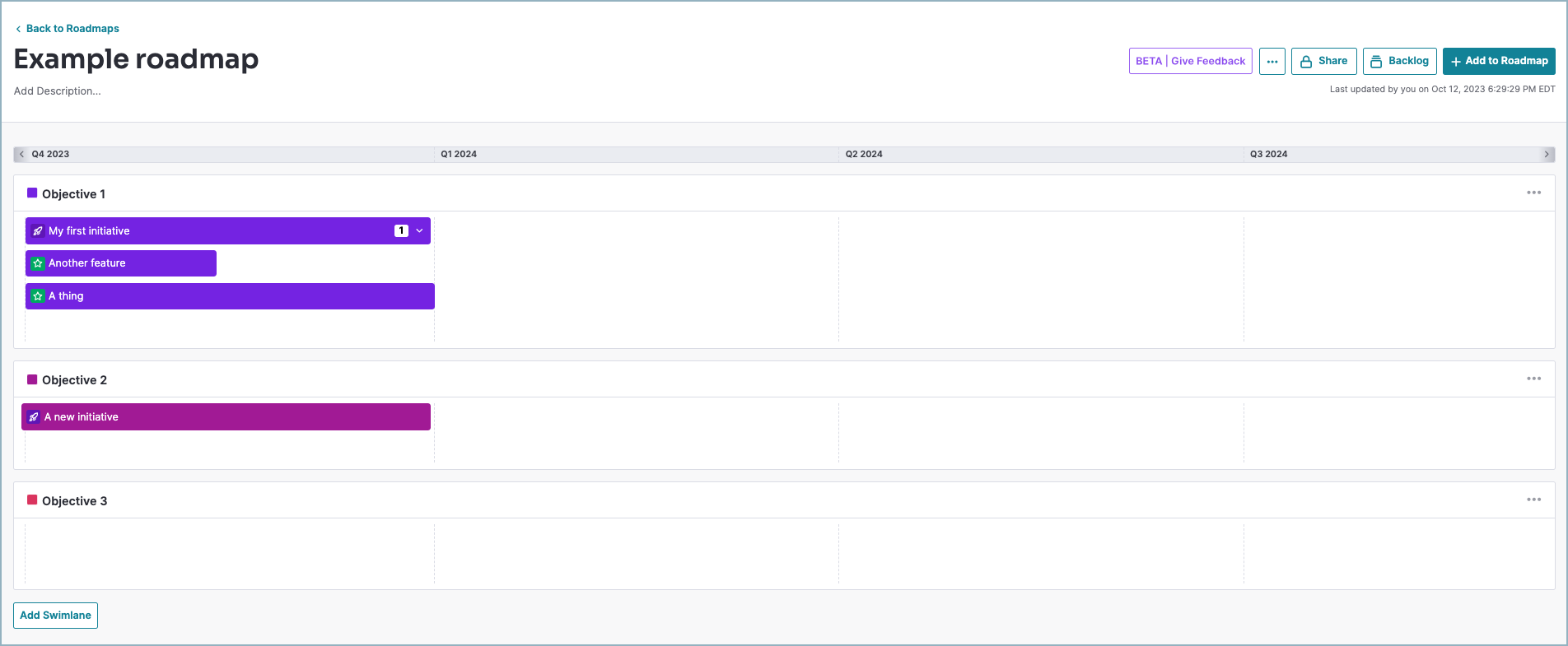
Thanks to its drag-and-drop interface, you can edit your roadmap timelines, customize priorities, and suggest new initiatives for the future.
How much does Pendo cost?
The Pendo pricing isn’t publicly available. You need to request a quote based on your unique monthly active users (MAUs) and needs.
However, according to Vendr, a SaaS negotiating company: “Costs for Pendo can range from $25,800 to $132,400, and for Pendo Feedback, the range falls between $12,500 and $86,800.”
Pendo’s annual costs range from $15,900 to $140,091, and there is no standalone Pendo Feedback pricing range—Feedback is bundled into the Pulse plan or available as a separate add-on.
At the time of writing, Pendo’s pricing structure doesn’t correlate to the products mentioned above: Analytics, Listen, and Orchestrate. Instead, Pendo offers five different plans:

- Free. Allows for up to 500 MAUs, in-app guides, branded NPS surveys, retroactive product analytics, and roadmaps.
- Base. Everything in Free, plus custom MAUs and one integration.
- Core. Everything in Base, plus session replays and expanded integration allowances.
- Pulse. Everything in Core, plus white-labeled NPS surveys, product discovery features, and full Pendo Feedback functionality.
- Ultimate. Everything in Pulse, plus advanced in-app guides, journey orchestration, and data synchronization.
All paid plans include one integration; however, the Free plan does not include any integrations.
What are the pros and cons of using Pendo?
Pendo users enjoy using this app and have given it a 4.4/5 score on G2 due to its:
✅ Powerful AI features: Pendo gives Pulse and Ultimate users access to AI-powered theme generation and summaries for NPS results and feedback surveys.
However, users like Brittany N., are worried about Pendo overusing AI and how this could affect performance and pricing: “I’m also worried that they may be releasing too many AI features that will potentially lead to feature bloat and a declining user experience. Also to mention increased pricing as a consideration here as “more features” = “we can raise our pricing”.”
✅ Supports both mobile and web-based apps
Pendo lets you build responsive in-app experiences, which means these will look great both on a mobile or web app.
✅ Many integrations available
Pendo integrates with the most popular SaaS tools and databases, so you’ll likely find that it supports your tech stack. However, Pendo pricing plans only support one integration per account.
❌ High costs
Although we can’t know for sure how much Pendo costs, people online often mention the price being too high or hard to scale for small businesses. “Pendo can start to feel out of reach or not scalable with your organization based on the MAU pricing model,” says Jessica C.
❌ Steep learning curve.
Since Pendo gathers tons of data and comes with multiple features, this can make the app hard to navigate. It takes time to adjust to the platform and get the most value out of it. “Very complicated and clunky to use, half of the time I’m not able to launch the design when trying to create a new guide. I wish the interface was more intuitive and that Pendo was compatible with other browsers,” shares a verified user on G2.
Userpilot: A better alternative to Pendo for product adoption
Due to Pendo’s high cost and steep learning curve, you may be considering other low-code solutions instead. Userpilot is also an all-in-one platform for product growth that helps teams collect feedback, review product analytics, and increase user engagement.
Some of Userpilot’s key features include:
- Autocapture. This is one of Userpilot’s distinctive functionalities. It automatically records every time a user clicks, changes a text, or fills out a form within your app, without having to tag events.

- User and company profile analytics. Profiles let you view data related to specific users or companies and gather insights based on their behavior. This way, you get to understand how each group behaves at an individual level and offer more tailored experiences.

- Reports. Userpilot lets you build reports to analyze metrics for different customer segments. Some types include:
– Trends—identify common behaviors amongst your users.
– Paths—see how users move around your app.
– Funnels—analyze the different user actions needed for them to reach a goal.
– Retention or cohort—see how engaged your users are by identifying how often they return to use your app or features.

- Analytics dashboards. Choose from one of our templates or build your own dashboard to stay on top of your key metrics and trends over time.

- Different microsurvey templates. Use one of our survey templates to gather insights into customer loyalty, satisfaction, and engagement or to assess product-market fit. Review survey analytics in a centralized view and access each individual answer by clicking on each question.

- Various UI patterns. Launch modals, in-app messages, helpful tips, surveys, and walkthroughs that look and feel like your brand by choosing from our UI patterns library.
- Checklists. Customize onboarding checklists to shorten your product or feature adoption times.

How much does Userpilot cost?
Userpilot’s pricing has a transparent structure. It comes at three price points:
- Starter plan. From $299/month. This is the entry-level plan for small teams with up to 2,000 monthly active users (MAU). You can only access the Starter plan with an annual subscription. It offers all engagement features, limited product analytics, and supports three seats.
- Growth plan. From $799/month. This is our most popular plan, and it’s tailored to mid-sized businesses. It allows for retroactive auto-capture, unlimited surveys, and product analytics. This plan also gives you instant access to content localization and advanced event-based triggers.
- Enterprise plan. Custom priced. This is suited for large, enterprise-level businesses as it allows them to reach users with advanced triggers, auto-capture user behavior, and analyze data in depth. This plan also meets enterprise-level security requirements such as SAML SSO.
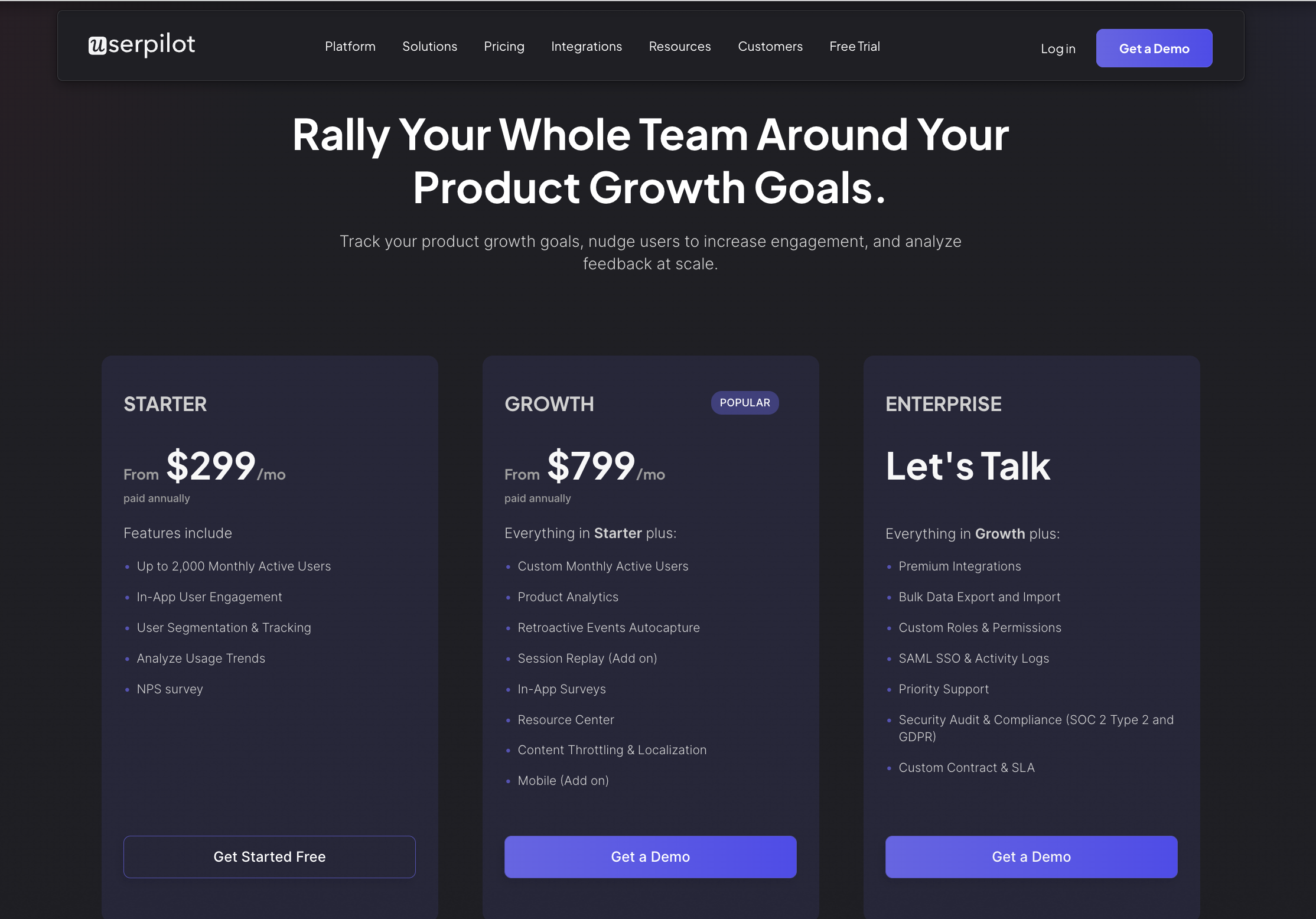
Why should software companies choose Userpilot over Pendo?
-
Better-priced solution that offers a more complete basic plan.
-
Platform with a shorter learning curve that lets you earn value from it from day one.
-
Platform that helps you understand your customers on a deeper level through profiles and lets you offer a more personalized experience.
Still not convinced? Take a look at Leyre’s experience:

Forget Pendo and try a more cost-effective option: Userpilot!
Pendo is a popular and robust product adoption platform with excellent analytics functionality. It also lets product teams design onboarding experiences and improve in-app communication within digital products.
However, Pendo tends to fall on the expensive end and comes with a steep learning curve.
If you want to pay for a similar tool that’s packed with all the features mentioned above, is easier to operate, and comes at a more affordable price, try Userpilot. Ready to try? Then book a demo, and we will show you how.
Userpilot strives to provide accurate information to help businesses determine the best solution for their particular needs. Due to the dynamic nature of the industry, the features offered by Userpilot and others often change over time. The statements made in this article are accurate to the best of Userpilot’s knowledge as of its publication/most recent update on May 9, 2025.

